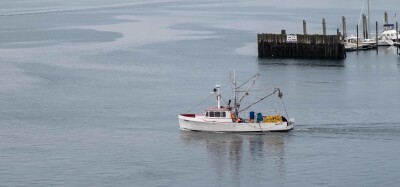We thank and applaud everyone who fought House Bill 983, the Fisheries Economic Development Act, a truly bad bill that would have designated red drum, speckled trout and rockfish as game fish, meaning only recreational fishermen could catch them.
Because the majority in the House, the Republican Caucus, found significant opposition to the bill, making it difficult to move it through committee, the bill is dead for this General Assembly session.
Opposing the game fish bill, in addition to small commercial fishing families and many county visitors' center and chambers of commerce, were the Farm Bureau and the N.C. Division of Marine Fisheries because it would have violated the Fisheries Reform Act of 1997 that governs coastal fisheries in North Carolina.
Bill sponsors, pushed by the Coastal Conservation Association, a sports fishing group, tried to say the three species of fish — a public resource — were more valuable to recreational fishermen and would boost tourism. They wanted them designated as game fish, meaning they would be taken off the market and couldn't be sold to consumers in seafood markets or enjoyed in restaurants. Only recreational fishermen — those who fish for fun with hook and line — could catch and eat them.
Had the bill passed, it would have financially ruined many commercial fishermen, many small family commercial fishermen and women, in some cases destroying their livelihoods and jobs and taken the fish from consumers, hurting coastal tourism in the process.
Rep. Paul Tine, D-Dare, instrumental in hamstringing the bill, said Wednesday that he spoke with the bill sponsor that evening after the bill was considered in the majority caucus and was assured the bill would not be run or folded into the budget.
"It was truly a bipartisan effort to defeat the bill and it would not have happened without all the work of the opponents who made sure their voice would be heard in Raleigh," said Rep. Tine.
"This bill pitted the recreational interests against the commercial fisherman, the consumer, the fish houses, the restaurants and the seafood stores," he continued. "The bill sponsor was fair in the process, allowing all sides to be heard and in the end most legislators decided that it was best that all sides have access to these public trust fisheries."
Read the full story at the Carteret County News-Times>>






